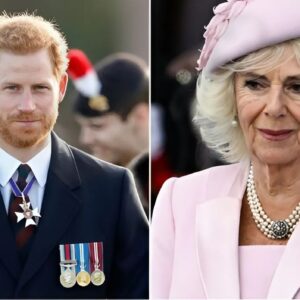Karoline Leavitt, known for breaking ground as the youngest White House Press Secretary, is no stranger to the political spotlight. But now, attention is shifting from her podium to her personal appearance. Rumors swirling across social media and political forums suggest she may have undergone cosmetic procedures—a claim that’s prompted a wave of commentary comparing her new look to none other than the Kardashian sisters.

Leavitt, 27, has built her brand on sharp rhetoric, youthful energy, and her unapologetically conservative stance. But in recent months, a more stylized appearance—plump lips, sharply contoured cheekbones, and a flawless complexion—has sparked widespread speculation.
Online commentators have dubbed her “DC’s Kim K,” while others note the transformation as part of a broader trend of young political figures embracing celebrity-style branding. One viral tweet reads: “Karoline Leavitt is starting to look more like a Real Housewife than a press secretary. What happened to the girl-next-door from New Hampshire?”
The Kardashian comparison didn’t emerge in a vacuum. Cultural critics point out that the Kardashian-Jenner family’s influence on beauty standards is so vast that their aesthetic has essentially become a template for high-profile women across industries—including politics. From airbrushed Instagram stories to red carpet glam looks, the so-called “Kardashian effect” continues to shape how public figures present themselves.
“Karoline’s glow-up may be just that—a glow-up,” says image consultant Dana Warren. “But in today’s media environment, where beauty and power are closely intertwined, every contour is scrutinized.”

Surgery Speculation or Makeup Mastery?
Despite the online frenzy, there is no official confirmation that Leavitt has undergone any plastic surgery. Many defenders argue that skilled makeup, better lighting, and maturing into her role could easily explain the shift. Others point to changes in fashion choices and more polished hair styling as part of a professional evolution, not necessarily cosmetic intervention.
One political stylist noted: “Karoline’s wardrobe is more structured now, her makeup is bolder, and she’s playing the part of a national figure. This is image strategy, not surgery.”
So far, Leavitt has not addressed the speculation. Her social media remains focused on policy commentary, campaign updates, and official appearances. Yet the public remains divided. Supporters argue that the focus on her looks is a sexist distraction from her competence, while critics see it as emblematic of a growing celebrity culture in American politics.
“This obsession with her face says more about us than it does about her,” said one op-ed in The Hill. “Why do we expect our female leaders to be both camera-ready and above criticism?”
Karoline Leavitt’s rise marks a new era in Washington—one where youth, image, and political power intersect like never before. Whether she’s simply evolving her public presence or embracing a Kardashian-inspired aesthetic, one thing is clear: she’s not fading into the background anytime soon.
In an age where optics can define narrative as much as policy, Leavitt’s transformation—real or perceived—is a reflection of the broader conversation about beauty, power, and the public gaze.







